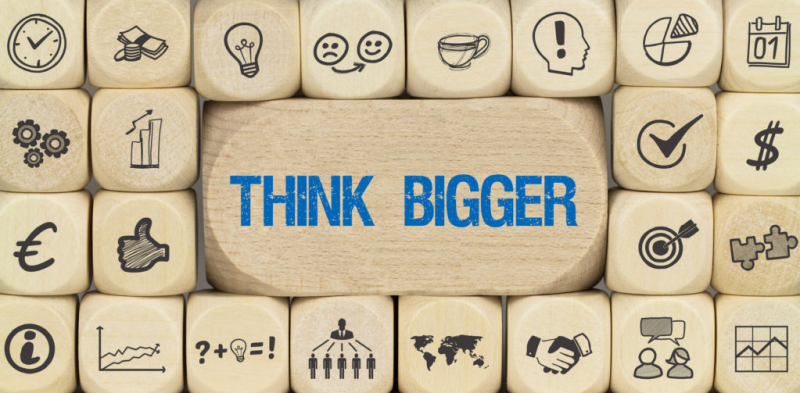“Your Best Just Got Better” is a book about how to deal with problems and not to spend all the power on them. The author Jason Womack is a Master of pedagogy and psychology, business coach and the author of two books.
Jason once described his ideal morning: “I wake up in a country house, look through the list of important tasks, work for 80 minutes, then have a 7 km morning run. When I return home, my wife is awake and cooking breakfast”.
Several years passed and Womack lived out his perfect morning in every detail. Then he realized that it’s high time to raise the bar.
Four resources
Everyone wants to achieve goals, be smart, successful, rich and still sleep. What’s stopping you? It is believed that we have not enough effort, time, money or motivation to be happy. Sometimes all at once. And most often – time.
Books on time management are focused on time, but they do not consider that we have not one, but at least four resources at our disposal:
- time
- attention
- tools
- energy
Ultimately, the most important resources are time and effort. The other two are needed to deal with the first two more wisely.
The resource of time
Womack introduces the concept of “1% of a day”. A day consists of 1440 minutes – it is 96-time intervals of 15 minutes. It turns out that 15 minutes is about 1% of a day.
Why 15 minutes? It is easy to imagine: for someone, it means to wash the floor, for someone – to write an important letter or make a list of tasks for the next three days. You can manage to do a lot of things in 1% of a day:
- sign a gratitude postcard;
- look through the schedule for the next three weeks;
- book a hotel for an upcoming trip;
- call the car rental agency to book the car;
- listen to autoresponder messages;
- send several e-mails;
- sketch a plan of an article for the magazine, etc.
People are often late for 15 minutes. Take advantage of this time. You do not have to take postcards, stamps, diary, phone, and pen. For some tasks, you will likely need only a smartphone. So, the main rule is as follows: “Always be ready!”.
The resource of attention
Attention is an even more limited resource than time. Phones, tablets and other gadgets flood us with notices. Colleagues distract us from work in the office. We can not focus at home too: cleaning, kitchen, family, television. The most productive time for people is in an airplane, at night, late in the evening or early in the morning in the office. It is time when everyone else is asleep and can not disturb you.
It is not so hard to master attention. If you get rid of distractions, you’ll increase productivity.
There are a few simple techniques to do this:
- hide the tablet in the bag and do not get it, until it is needed;
- put the phone on the screen;
- arrange the workplace so that it is uncomfortable for the colleagues to reach it;
- write down all the ideas that should be discussed with a colleague and share discuss all of them at the end of the day;
- remove colored leaves with reminders from the workplace, they cause stress;
- remove social networks from favorites shortcut in the browser;
- turn off the sound and pop-up notifications of social networks.
Even if you do three of these seven points, you will move the ability to focus on a new level. It is easier than reading articles about time management and sitting at the seminars.
The resource of tools
Instruments fail to help you if you do not use their full potential. Sometimes after a few years of using the program, the user learns about the new features and wonders how convenient they are. Even the most primitive programs have lots of handy functions known by the minority.
Excellent time-saving features can be found even in the most simple program of “Microsoft Word”:
- AutoCorrect: “doc” – client’s document № …
- Keyboard shortcuts: Shift + F3 – change the case of letters, CTRL + [- decrease the font size by 1 point, CTRL +] – increase the font size by 1 point, CTRL + F6 – move to the previous screen.
- Style settings: once you set the font and size for headings and subheadings, captions and everything else, and then apply it to the text fragments. You need only one style editing to change all the titles at once. It’s especially useful for large documents.
The resource of energy
Energy is important, not less than the time, tools or attention. It often happens that you make a list of tasks, manage to do everything in time, do not get distracted, but perform only 5 of 10 tasks and feel exhausted. You have not enough energy. This happens because not everyone knows when to deal with important matters. To know it, trace yourself for one day and make a list.
You’ll have something like this:
I am the most productive…
- half an hour after awakening;
- after jogging;
- after listening to Indian mantra;
- after having a shower;
- after talking with a colleague.
The pace is another aspect of energy. We always want to solve problems as soon as possible, we hurry and still do not have time. After some time our head refuses to think and as a result, only half of the tasks is done.
The easiest way to restore the pace is to decide what, when and how you need to do and then get rid of unnecessary tasks. It’s more productive to apologize and explain the situation than to suffer from the unfinished tasks.
Think big
Think big means asking yourself questions and do not stop at the first obvious answer. Then it becomes clear why we need this job or pattern of behavior.
Why I’m going to change the job? – Because I do not like this one. – Why? – I do not like the nature of work and the model of management. – Why? – There is too much control, no creativity, the initiative is not welcomed. – Why is it bad? – I want to be satisfied with my job, perform it honestly, to be helpful and responsible.
Answering such questions you can learn a lot about yourself and understand the reasons of what is happening in your life. It sometimes requires courage to ask them, because they often lead to unexpected conclusions. But all the problems are immediately put in order.





